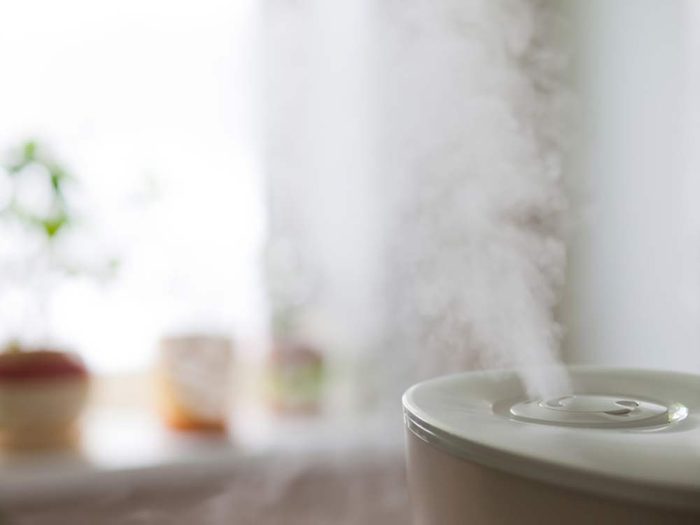
What Type of Cough Do You Have?
There are two types of coughs. A wet, or productive, cough, which yields mucus, is usually caused by allergies, colds, or other respiratory infections. A dry, or unproductive, cough may also be caused by a cold but is more often caused by cigarette smoke, dust, fumes, or some other form of irritation. This cough does nothing but irritate your throat, making you hack more. Come winter, a cold or the flu is the cause of your hacking. An infection of the upper respiratory tract can cause swelling and irritation of the upper airways and, at times, mucus, which you cough up as phlegm.
If you have a wet cough, you don’t want to suppress it—it’s the body’s way of clearing out mucus. Instead, you actually want to encourage it so you can get rid of the phlegm faster and get the coughing over with. With a dry cough, on the other hand, the trick is to coat the throat and tame the tickle.
Check out these 5 Homemade Cough-Taming Teas.

Cough Remedies: Take the Candy Cure
For wet coughs, suck on horehound candy, available in drugstores. A bittersweet herb, horehound acts as an expectorant, triggering the coughing reflex and helping bring up phlegm.
For dry coughs, rely on slippery elm lozenges. Made from the bark of the slippery elm tree, these were once medicine-chest staples. Slippery elm is loaded with a gel-like substance that coats the throat and keeps coughing to a minimum.
Can’t find slippery elm lozenges? For a dry cough, any hard candy will do because it increases saliva and causes you to swallow more, suppressing coughs. Lemon drops work especially well for wet coughs.
Another remedy calls for combining peppermint candy, lemon juice, and honey. Heat the candy in lemon juice until the latter is dissolved. Then add honey and stir. Take 1 to 2 tablespoons as needed.
Try one of these homemade cough and sore throat remedies!

Cough Remedies: Rub-On Relief
Find a chest rub that contains camphor or menthol and apply it to your throat and chest. Both of these substances are topical antitussives, which simply means they stop a cough. They should not be taken internally.
If you don’t have any store-bought chest rub, try making a mustard plaster to loosen up chest congestion. Mix one part mustard powder and two parts flour in a bowl. Add just enough water to make a paste. Spread the paste on a dishtowel, fold the towel in half, and press it against the skin. (Never put the mustard mixture directly on your skin.) Check your skin often and remove the plaster if your skin becomes too red or irritated. Some people suggest using an egg white instead of water to make a plaster that’s less likely to burn.
Here are 5 Everyday Things To Treat a Cough.

Cough Remedies: Learn a New Coughing Technique
If your throat is strained and irritated from nonstop coughing, try this technique to head off a coughing fit. The next time you feel a cough coming on, force yourself to take a series of small, gentle coughs, finally ending with a large one. The tiny coughs help move mucus toward the upper part of your air passage so you can expel more of it with that last, big cough.

Cough Remedies: Lights Out, Vapour On
To help prevent nocturnal coughing, use a humidifier in your room to moisten the air, particularly in winter.
Make it easier on yourself this season by adopting these 25 cold-coping strategies.

When to Call a Doctor
Most coughs clear up on their own within a week to 10 days. But if yours lasts more than 2 weeks, or you cough up blood, make the call. Coughing can be a symptom of a more serious illness, such as chronic obstructive pulmonary disease (COPD) and asthma. It can even indicate congestive heart failure, especially if it’s accompanied by wheezing, shortness of breath, or swelling of the legs. If you have sharp chest pains, chills, or a fever higher than 38.3°C (101°F) as well as a cough, you may have pneumonia.
Here are beauty tips on how to look your best even when you don’t feel it.